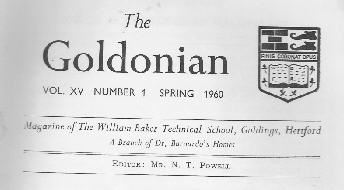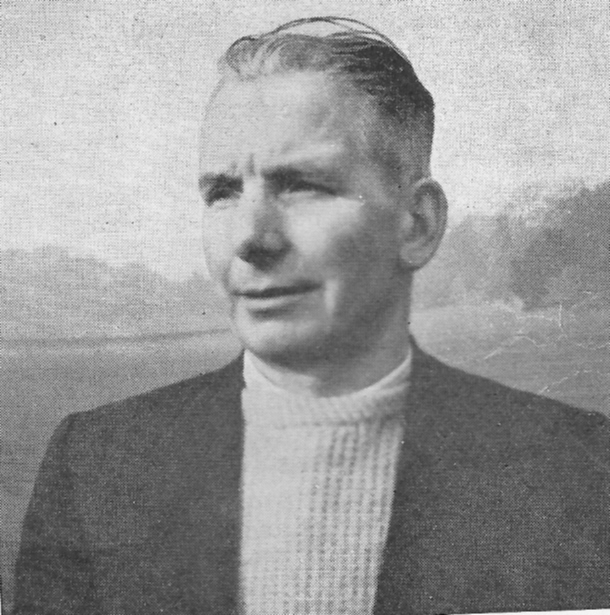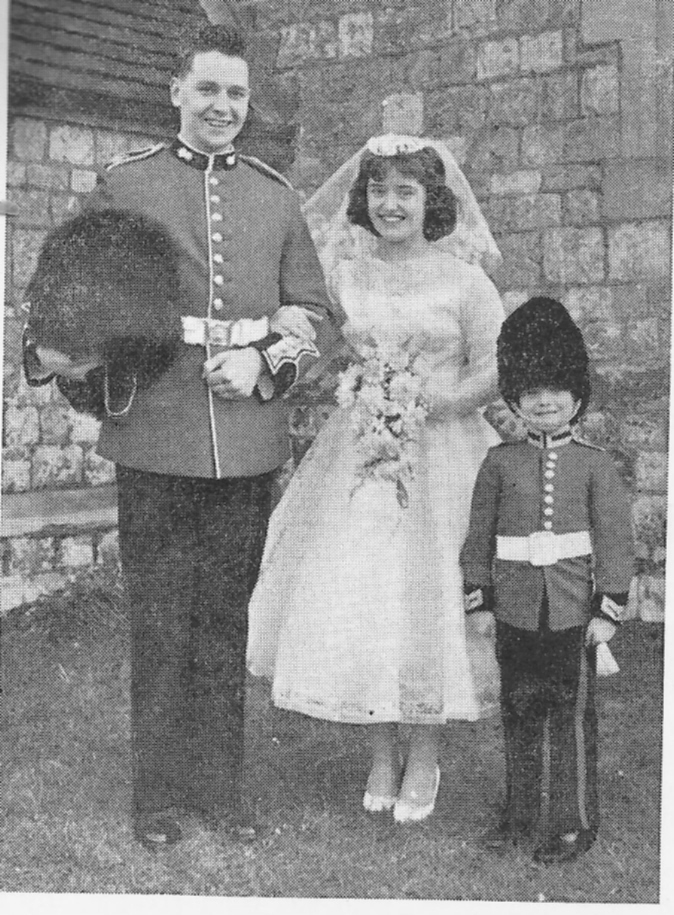|
APATHY—HOW frequently one hears this word used these days; I sometimes wonder if it is always used correctly, and do we really know
what the word means. According to my dictionary it means 'want of emotion' or 'indifference', which in turn means 'unconcern' or 'apathy'.
Having explained the meaning of the word 'apathy' I make no excuses or apologies for using it to describe what I feel is the state of mind of a
big percentage of our boys, and a smaller percentage of our staff.
Now that statement alone should be enough to astir some sort of emotion in every reader, at least I hope it has, because I am now going to give
some instances of what I consider show complete APATHY on our parts.
Every Saturday there is at least one football match on top field, sometimes if both School teams and the Old Boys are playing, there are three
matches, but how many boys are interested enough to go up and cheer their team, or even go up? Very, very few, in fact I have heard Mr.
Stackwood and Mr. Whitbread say they have spent the afternoon alone on the touchline if it has been particularly cold or wet. That in itself is
bad enough, but worse still is the fact that Mr. Whitbread has to go around and more or less plead with boys who are reasonably good at the
game to turn out and play! Can today's teenagers wonder why some of us 'old 'uns' like to talk about 'when we were young'!
Now for another instance. On Saturday, 6th February, 1960, Mr. Newton, at no mean expense of time and energy, arranged a COUNTY table
tennis match between Hertfordshire and Buckinghamshire to be played in the gymnasium. I arrived about five minutes past seven, ready to
apologize for being late, and expecting to squeeze myself into a corner somewhere, but what did I find, of the 200 chairs set out 190 were
empty; and of those occupied five were players! I just could not believe my eyes, and instead of apologizing for my lateness I could only
commiserate (express pity) with Mr. Newton. I stayed until 10 o'clock and watched nine excellent matches, and during that time a total of ten
boys 'looked in' and eventually went out again. Excluding Mr. Newton, there was one other member of staff present with myself.
I have instanced this table-tennis match to show that this 'apathy' is not only rife at our school, but also with the general public, because as we
are all aware, there are many table-tennis teams in the Hertford area, but in addition to the Secretary and Treasurer of the League only two
members of the public from Hertford attended, the others, who eventually turned up, came from Buckinghamshire and St Albans, This, of
Course is, is no excuse for our inability to support an event put on for our benefit.
How many of you take the trouble to go down to the gymnasium when one of our two teams is playing at home?
Now ask yourselves another question, how many of you watch the television every night or attend every film show that is shown. My
conservative estimate is 95 per cent. And there 1 think is the root of the trouble, 'canned' entertainment is making some of us a lazy lot of
no-goods. There are far too many people who want as much as possible for as little effort as possible. I feel bound to say that too much
entertainment is provided by too few people, and that those who should do the running around are those who are content to sit on their bottoms.
I am well aware that quite a number of my readers will think these accusations do not apply to them, and I am quite sure they don't, and so to
cover all feelings I would say, 'if the cap fits, wear it', and if it does fit then for heaven's sake change the cap as soon as possible, and if you
must have corns, let them be on your feet.
Building Aright
THROUGHOUT THE past summer and winter we have all observed with great interest the building of a new wing to our home. We have seen
what coming generations of Goldings boys will never see, for we have watched the digging of the foundations and know that before ever one
brick was laid upon another much work was done underground to ensure that the building should stand fast and true. The first upward growth
was very slow. One day followed another without much perceptible development as though it drew its substance from the earth beneath. Now,
in the spring, we become aware that it has arrived complete and almost ready for our enjoyment. Already it looks part of the landscape and
doubtless before long we shall find it hard to imagine the old house as it was. You may very likely take this for granted, but in reality this
naturalness—the marrying of the new to the old is a wonderful achievement on the part of the architect, to whom we are all very much indebted
for this happy outcome of his thought and skill. The builders, too, are deserving of our thanks, for they have given form and substance to his
imagination.
When the new wing is occupied there will also be changes in our division into School Houses which will affect us all, especially in our games
competitions and our spare time activities. No longer will a boy have to change his house when moving from the junior section of the School,
for each house will have its senior and junior sections and there will be five houses in all. Of course, we can't all live in the new wing and those
who do may appear to be the lucky ones at first, but section by section the 'Houses' in the old building will be improved and brought up to a
higher standard.
Everyone will welcome the increased comfort and opportunities which these improvements will bring, but we would all do well to
remember that it is the quality and spirit of the boys that makes the School good or bad and not bricks and: mortar and creature comforts. Those
of us who have been at Goldings since the War and some who were here even before know that the conditions of living here in those times
were much harder and rougher than they are nowadays and yet the School produced many fine men of whom we can be justly proud. We are
all painfully aware that there are those who have enjoyed every reasonable comfort which a house can provide and yet have behaved
disgracefully. In a family plain speaking never did any harm. We shall want to feel proud of our School as we show off our new possessions,
but if we want to bring it credit and renown and maintain the prestige which our predecessors established, it is no use just looking to our bricks
and mortar. We must each see to it that our own standards match up to high traditions and what is equally important, we must be prepared to
show plainly our disapproval of any conduct damaging to them.
R. F. W.
Chaplain's Notes
How TIME flies!' As I write I am surprised to find that already I have been a month at Goldings, and overjoyed to feel that the strange,
bewildering sea of faces which greeted me at the first morning's assembly has resolved into a host of many names
(some extremely well known! !) I would also here say how much both my wife and myself have appreciated the warmth of your welcome, and
how quickly you have enabled us to settle amongst you.
I was startled just before I arrived to learn that the Confirmation this year was in March. However, thanks to the diligence of the candidates and
the kind co-operation of my colleagues on the School staff we managed to double our efforts and were well prepared for the Bishop's coming.
The Confirmation service itself, all will agree, was a tremendously inspiring occasion. The Chapel, thanks to the resources of the Gardening
Department, was beautifully decorated and the whole scene will be long remembered by both congregation and confirmation candidates. We
shall not forget the words of the Bishop of Bedford, and indeed they could serve us as a text for the term.
Confirmation services, wherever they take place, are always great and moving occasions, but we do well to remind ourselves that the service
itself is just the beginning. What is there said and what is there done, should always lead on to that fullness, that maturity of Christian life, and
this means paying attention to our Christian calling and teaching and always being resolved to walk the Christian way ... in the steps of the
Master.
B. L. N.
|





